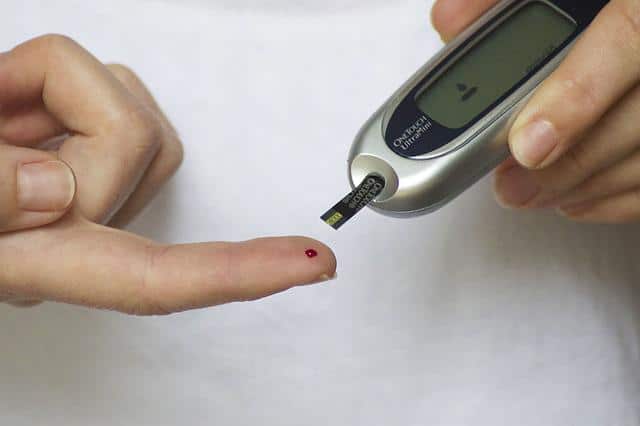5 Ways to Lose Weight Safely If You Have Diabetes
Losing weight safely when you have diabetes is challenging. Diabetes is a complex condition that complicates the simple act of losing unwanted body fat because of disruptions in how your body processes insulin. Crash diets and extreme exercise programs can actually put you at risk for serious health complications.
Focus instead on these 5-safe, sustainable approaches to losing weight with diabetes.
1. Work with Healthcare Experts
Check in with your healthcare provider before you start your weight loss journey. Your doctor will be able to give you advice on which foods, and diets, to specifically avoid to keep you healthy, and your diabetes in check, while you drop unwanted pounds. You should also consult with qualified weight loss specialists who can help you develop a specific plan for diet, exercise, and scientifically-sound supplementation. Remember, your body is unique, so work with the experts to tailor your weight loss plan to your special needs.
2. Optimize Your Nutrition
Be careful of which diet you choose. Not all are made for diabetics. Try to focus on a balanced diet that works with your lifestyle. Eat whole, nutrient-dense foods that are centered around:
- Lean proteins: Chicken breast, lean cuts of beef or pork, eggs
- Vegetables: Spinach, broccoli, cabbage, cucumber, lettuce
- Certain fruits: Apples, strawberries, watermelon
- Healthy fats: Extra virgin olive oil, fish oil, krill oil
Pay attention to portion sizes, and opt for complex carbohydrates, rather than simple sugars, because complex carbs enter the bloodstream more slowly, and have less of an impact on your blood sugar levels. Avoid sugary and processed foods, as they can lead to spikes in blood sugar, hindering your weight loss efforts.
3. Monitor Carbohydrate Intake
In order to lose weight safely, diabetics must monitor their overall carbohydrate intake, and strive to make the best choices with the carbs they include in their diet. Balancing your carbohydrate intake with insulin or other medications is key to preventing blood sugar fluctuations. Focus on high-fiber carb sources, like vegetables, berries, and whole grains like quinoa. Consistently monitoring your blood sugar and adjusting your carbohydrate intake accordingly will support safe weight loss without compromising your condition.
4. Regular Exercise
Choosing the right type of exercise routine is critical. Engaging in both cardiovascular exercises and strength training not only helps burn calories, but also improves insulin sensitivity. If it’s been a while since you’ve exercised, start slow with low-to-moderate intensity activities like walking. Build slowly. Before long you’ll be able to walk longer, and faster, and then transition to higher intensity exercises like swimming, cycling, and weight training. Remember to monitor your blood sugar before, during, and after exercise to prevent hypoglycemia or hyperglycemia. Talk to your doctor, and consider getting advice from a trainer who is experienced in helping diabetics.
5. Set Realistic Goals and Stay Consistent
You can lose weight despite your diabetes, but it will take patience, realistic goal setting, and most importantly, staying consistent. Even if you have a lot of weight to lose, keep your goals achievable. Aim for about 1-pound per week of weight loss, though keep in mind that weight loss is not linear. There will be weeks where you’ll lose a bit more or less, and sometimes none at all. That’s why it is so important to be consistent. Stick to your diet plan, continue exercising, and monitor your blood sugar every step of the way. Celebrate your progress, no matter how small, and stay motivated by focusing on improved overall health and well-being.
Conclusion
Losing weight safely while managing your diabetes is possible, if you take the time to develop your plan along with the help of your doctor or other weight loss expert. Optimize your nutrition, find the right exercise program for your body and your lifestyle, be consistent, and keep your goals realistic and achievable. By integrating these safe strategies into your lifestyle, you can pave the way for successful weight loss and better diabetes control.







